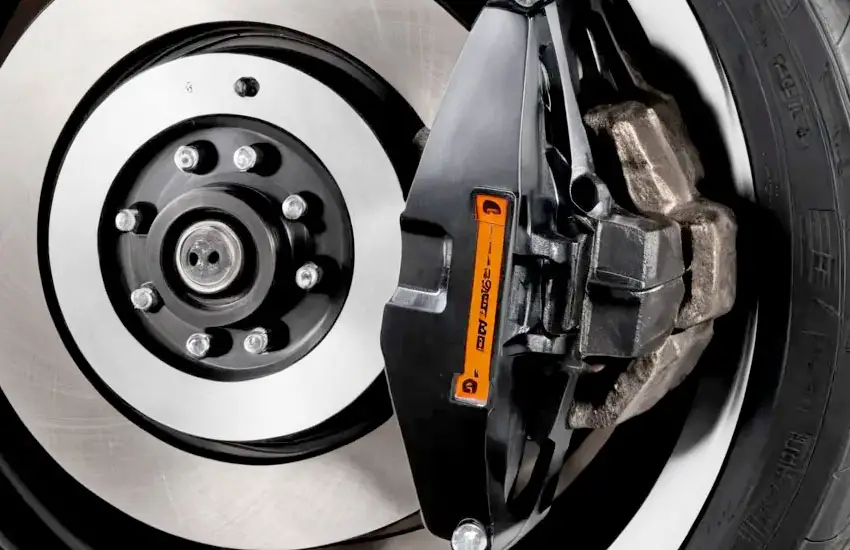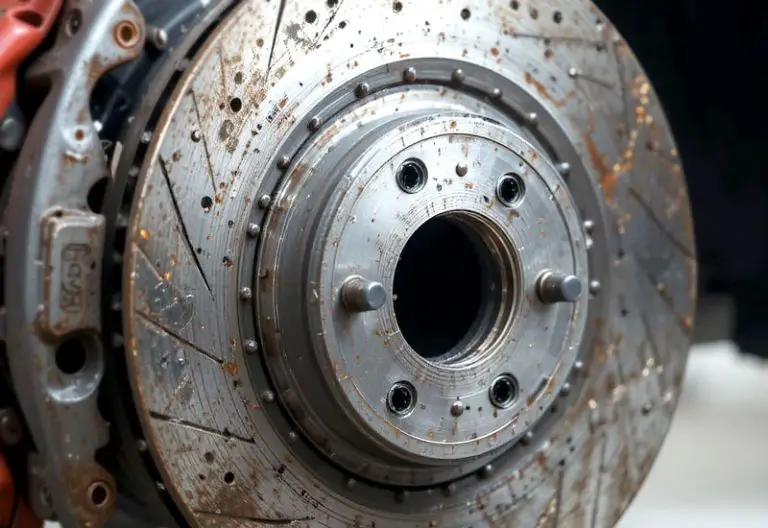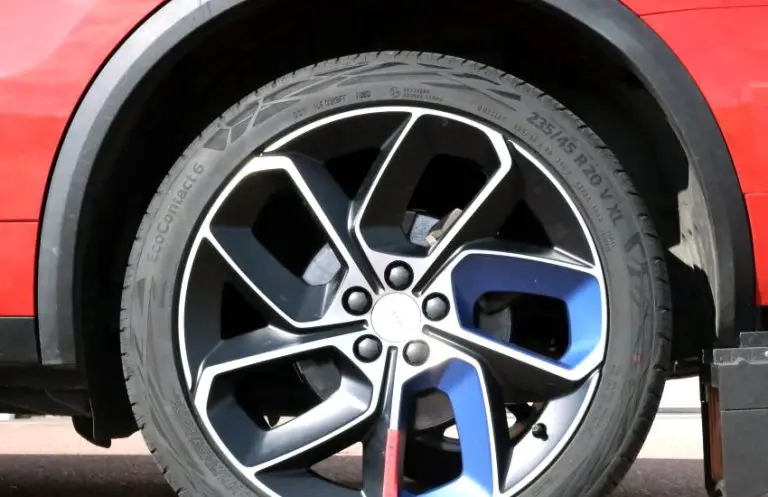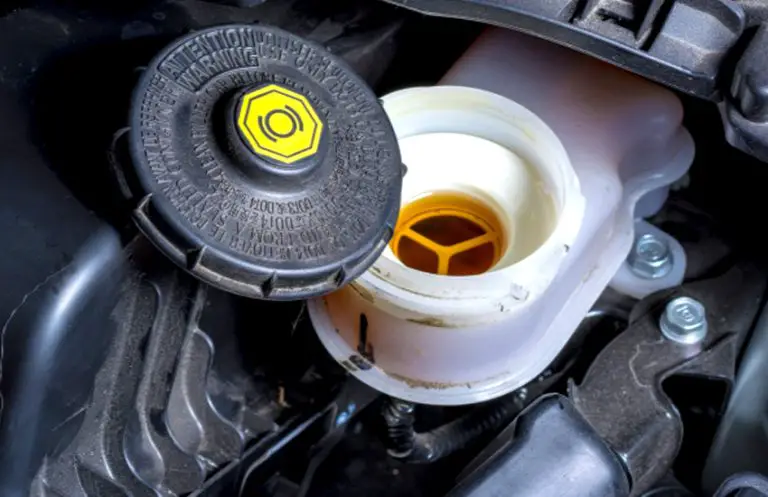When you press the brake pedal in your Hyundai i20, you expect a smooth and safe stop. But what if that doesn’t happen? Brake calipers, the crucial components in your braking system, might be the reason. These parts are responsible for squeezing the brake pads against the rotors to slow down your car. Without properly functioning brake calipers, your car’s braking performance could be compromised, which could be dangerous.
If you’re a Hyundai i20 owner or a potential buyer, understanding common brake caliper issues can save you from costly repairs and potential accidents. In this blog post, we’ll dive deep into the common brake caliper issues in a Hyundai i20, their signs, causes, and solutions. You’ll also learn how to take care of these components to keep your brakes in excellent condition. So, let’s get started!

Common Brake Caliper Issues in a Hyundai i20
The brake caliper is a vital part of your car’s braking system, responsible for creating the friction needed to stop your vehicle. Over time, just like any other part of a car, the brake caliper can develop various issues. Knowing what to look for can help you maintain your Hyundai i20’s brakes and keep them functioning at their best. Let’s explore the most common brake caliper issues that might affect your Hyundai i20.
1. Sticking Brake Calipers
One of the most common brake caliper issues in the Hyundai i20 is sticking or seized calipers. A sticking caliper occurs when the caliper doesn’t fully release the brake pads after you take your foot off the brake pedal. This can cause the brakes to drag on the rotors even when you’re not applying pressure, leading to excessive wear, overheating, and poor performance.
Causes of Sticking Brake Calipers:
- Rust or Corrosion: Over time, moisture and road salts can cause rust or corrosion to build up on the caliper components. This can cause the caliper to stick, preventing it from moving freely.
- Worn-out Caliper Slides: The caliper slides (the parts that allow the caliper to move) can wear out over time. If the slides become dirty, corroded, or worn, they may prevent the caliper from functioning correctly.
- Faulty Caliper Pistons: The caliper pistons play an essential role in pushing the brake pads against the rotors. If the pistons are damaged or clogged, the caliper may not release properly, leading to sticking.
Symptoms of Sticking Brake Calipers:
- Overheating of Brakes: A common symptom of a sticking caliper is the overheating of the braking system. If the caliper doesn’t release properly, the brake pads will remain in contact with the rotor, causing excessive heat. You may notice a burning smell from the wheels or even smoke.
- Uneven Brake Wear: Sticking brake calipers can cause one side of your brake pads to wear down faster than the other. If you notice uneven brake pad wear, it may indicate a sticking caliper.
- Pulling to One Side: If a brake caliper sticks on one wheel, you may notice your Hyundai i20 pulling to one side when you apply the brakes. This happens because the braking force is uneven across the wheels.
- Reduced Brake Performance: If your calipers are sticking, the car may take longer to stop, reducing overall braking efficiency. You may also feel a loss of braking power or hear unusual noises when braking.
Solutions for Sticking Brake Calipers:
- Lubrication and Cleaning: Regular maintenance can help prevent sticking brake calipers. Ensure that the caliper slides and pistons are properly lubricated and free from dirt or corrosion.
- Replacement of Faulty Components: If the caliper slides, pistons, or other internal components are damaged, replacing them is often the best solution. In some cases, it may be necessary to replace the entire caliper if the damage is too severe.
2. Leaking Brake Fluid
Leaking brake fluid is another common issue with brake calipers in the Hyundai i20. If you notice a drop in brake fluid levels or see fluid puddles near your wheels, the brake caliper might be the culprit. Leaks typically occur at the caliper seals or around the piston area.
Causes of Leaking Brake Fluid:
- Damaged Seals: The brake calipers are sealed with rubber or other materials that prevent brake fluid from leaking out. Over time, these seals can degrade due to wear and exposure to heat, leading to leaks.
- Cracked Caliper Body: The body of the brake caliper is usually made of aluminum or steel. If the caliper experiences a severe impact (such as a road debris strike or an accident), it can crack, causing fluid to leak.
- Improper Installation: If the caliper was not properly installed during a brake job, it could lead to improper sealing and leaking brake fluid.
Symptoms of Leaking Brake Fluid:
- Low Brake Fluid: One of the most obvious signs of a brake fluid leak is low brake fluid levels. If your Hyundai i20’s brake fluid is frequently low, there’s a high chance of a caliper leak.
- Soft or Spongy Brake Pedal: A drop in brake fluid pressure due to a leak can cause the brake pedal to feel soft or spongy when you press it. This is a serious issue and should be addressed immediately.
- Visible Fluid Leaks: If you notice brake fluid dripping from the caliper area, this is a clear sign that there’s a leak. Brake fluid is usually clear or yellowish in color, but it can darken over time due to contamination.
Solutions for Leaking Brake Fluid:
- Caliper Seal Replacement: If the seals in the brake caliper are damaged, replacing them can often stop the leak. This is a relatively simple fix that can restore proper brake function.
- Caliper Replacement: In some cases, a cracked or severely damaged caliper may need to be replaced entirely. If the caliper body is damaged, it’s not always possible to repair it, and a full replacement is necessary.
3. Uneven Brake Pad Wear
Uneven brake pad wear is another issue that can arise from faulty brake calipers in the Hyundai i20. If the brake calipers are not applying even pressure across the brake pads, one pad may wear out faster than the other. This can lead to inefficient braking and uneven brake performance.
Causes of Uneven Brake Pad Wear:
- Sticking or Seized Calipers: As mentioned earlier, a sticking or seized caliper can cause the brake pads to remain in contact with the rotor, leading to excessive wear on one side of the brake pad.
- Faulty Brake Caliper Mounting: If the caliper is not properly mounted or aligned, it may not apply equal pressure across the brake pads. This can cause one side of the brake pad to wear faster than the other.
- Worn-out Caliper Slides or Pins: The caliper slides or pins allow the caliper to move freely. If they are worn out or corroded, the caliper may not apply even pressure to the brake pads, leading to uneven wear.
Symptoms of Uneven Brake Pad Wear:
- Uneven Pad Thickness: If you notice that one brake pad is significantly thinner than the other, this could be a sign of uneven wear caused by a faulty brake caliper.
- Vibration or Pulsing: If the calipers are applying uneven pressure, you may feel vibrations or pulsing when braking. This is often caused by an uneven surface on the brake pads.
- Noise When Braking: Uneven brake pad wear can also cause noise when you apply the brakes. This could be in the form of squealing, grinding, or other unusual sounds.
Solutions for Uneven Brake Pad Wear:
- Proper Caliper Alignment: Ensuring that the brake caliper is properly aligned and mounted can prevent uneven wear. If the caliper is misaligned, it should be fixed or replaced.
- Replacement of Worn Components: Worn-out caliper slides or pins should be replaced to ensure that the caliper applies even pressure on the brake pads. In severe cases, replacing the entire caliper may be necessary.
4. Vibration and Noise
Vibration or unusual noise during braking is a common complaint from Hyundai i20 owners with brake caliper issues. If you experience a vibrating steering wheel or hear grinding, squealing, or other strange noises, the brake caliper could be the issue.
Causes of Vibration and Noise:
- Worn Brake Pads: If the brake pads have worn unevenly or are damaged, they may cause noise and vibration when they come into contact with the rotor. This can be exacerbated by a sticking or malfunctioning brake caliper.
- Caliper Not Centered: If the caliper is not properly centered over the rotor, it can cause uneven contact with the brake pad, resulting in noise and vibration during braking.
- Debris or Dirt in Caliper Mechanism: Dirt, dust, or road debris can get into the caliper mechanism and interfere with the movement of the caliper. This can cause unusual sounds when braking.
Symptoms of Vibration and Noise:
- Steering Wheel Vibration: If you feel the steering wheel vibrating while braking, it could be a sign of an issue with the brake calipers.
- Unusual Sounds: Grinding, squealing, or other noises when braking could indicate that the calipers are malfunctioning or that the brake pads are worn out.
Solutions for Vibration and Noise:
- Brake Pad Replacement: Worn or damaged brake pads should be replaced. If the pads are the source of the noise or vibration, this will solve the problem.
- Caliper Cleaning and Lubrication: Regular cleaning and lubrication of the brake caliper components can prevent dirt and debris from interfering with their function.
- Caliper Replacement: If the caliper is misaligned, damaged, or malfunctioning, it may need to be replaced.
Regular Maintenance for Brake Calipers in a Hyundai i20
Preventing brake caliper issues in your Hyundai i20 involves regular maintenance and care. Here are some tips to ensure that your brake calipers stay in good condition:
- Regular Inspections: Have your brake system inspected regularly by a professional mechanic. They can check the condition of the calipers, pads, and rotors and identify any potential issues before they become serious problems.
- Brake Fluid Checks: Keep an eye on your brake fluid levels. Low brake fluid can indicate a leak or other issues with the braking system.
- Brake Pad Replacement: Replace your brake pads when they start to wear down. Worn-out pads can put extra strain on the brake calipers and other components.
- Lubrication: Ensure that the caliper slides and pistons are lubricated to prevent sticking and uneven wear.
- Avoid Hard Braking: Avoid excessive or hard braking, which can put unnecessary stress on the brake system and cause premature wear on the calipers and other components.
I hope this post has helped you understand the common brake caliper issues that can affect your Hyundai i20. Keeping an eye on your brake system’s performance and addressing issues promptly can ensure your vehicle stays safe and efficient on the road. Regular maintenance, inspections, and timely repairs will help you avoid costly repairs and keep your Hyundai i20’s braking system in excellent shape.
Are These Questions in Your Mind?
Is it safe to drive with a sticking brake caliper?
No, driving with a sticking brake caliper can cause uneven braking and overheating, which can lead to further damage and safety risks. It’s important to address the issue immediately.
Can I fix a leaking brake caliper myself?
While minor repairs, like replacing seals, can be done by a skilled DIYer, it’s recommended to have a professional mechanic handle brake caliper repairs, as brake systems are complex and require precision.
Do I need to replace the brake caliper if it’s leaking fluid?
If the leak is due to a damaged caliper body or seals, replacing the caliper is often necessary. A professional mechanic can determine the best course of action.
Is it expensive to replace a brake caliper in a Hyundai i20?
The cost of replacing a brake caliper in a Hyundai i20 can vary depending on the mechanic, location, and whether you’re using OEM or aftermarket parts. Generally, it’s a moderate repair cost.
Can a sticking brake caliper cause uneven tire wear?
Yes, a sticking brake caliper can cause uneven brake pad wear, which can result in uneven tire wear over time.
Do I need to replace all brake calipers at once?
It’s not necessary to replace all the calipers at once unless they are all showing signs of damage. Often, only the problematic caliper needs to be replaced.
Is it possible to prevent brake caliper issues in the future?
Regular brake maintenance, including cleaning, lubrication, and inspections, can help prevent brake caliper issues from arising in the future.
Can a leaking brake caliper affect the braking performance of my Hyundai i20?
Yes, a leaking brake caliper can lead to low brake fluid, resulting in reduced braking performance and a soft or spongy brake pedal.
Do I need to replace the brake pads if the caliper is faulty?
Yes, if the brake caliper has been malfunctioning, it may have caused uneven brake pad wear, which would require replacing the pads.
Is it normal for brake calipers to make noise?
No, brake calipers should not make noise under normal circumstances. If you hear squealing, grinding, or other unusual noises, it could indicate a problem with the calipers or other brake components.


